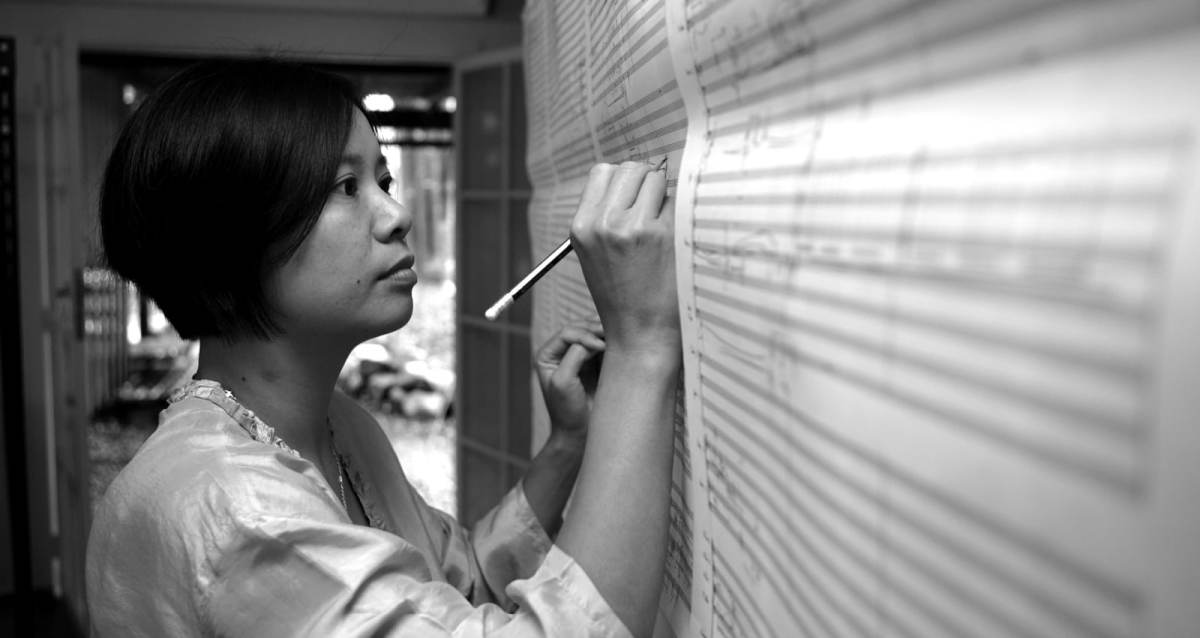As part of our partnership with ricordilab, we spoke with the composer Liza Lim about her duties with this competition and the benefits and limitations of composition competitions in general.
VAN: Composers often complain that hyper-complex-looking scores have an advantage in competitions. How much does the way the score looks impact your decisions?
Liza Lim: I don’t know about “hyper-complex” being particularly in favor these days; that certainly wasn’t the case in the last couple of competitions that I followed as a jury member. But a score that looks professional and as if the composer cares about creating a useable interface for performers will always be more appreciated than something that looks shoddy.
The latest from VAN, delivered straight to your inbox
Competitions with juries tend to pick consensus winners. How do you preserve space for radical musical visions with such a diverse jury?
I do feel a certain dilemma about the nature of this competition in that I think there are many interesting composers who are making work outside of the more traditional formats—for instance, there is a great interest in combining visual and sonic media, in conceptual and experimental non-score based work amongst emerging composers. More fundamentally, I can see that truly new thinking, by definition, creates its own coordinates of value and so it can easily be overlooked, only to be recognized later.
But one of the interesting things about Ricordi and other publishers that have been in business for a couple of centuries is the relationship they have with “music history” and certain narratives about innovation. Classical music publishing is still to some extent about the long-term view as opposed to the more quick and disposable exploitation of pop publishing. So actually, I think the jury is looking for strong musical visions—work which stands out as having something unique to say will be of great interest.
With this competition, Ricordi is “looking for composers from various musical backgrounds to enrich [its] Berlin roster.” Why do you think only composers that have had four works performed or commissioned by at least one professional ensemble or orchestra can apply?
One has to start somewhere in the search for younger artists and Ricordi is looking for composers who are already on some kind of path of success in terms of commissions and performances—it’s a useful sign that that artist has started to build up relationships with the area of the music business in which a publisher can be useful. A publisher is just one part of the equation in an artist’s career and one certainly doesn’t need one to be successful. Examples of high-profile composers who self-publish include Philip Glass and Jennifer Higdon; Stockhausen is another example of someone who exited a publishing relationship to take control of his own work by creating his own imprint, but not everyone has the skills or inclination to manage the business side of things.
There are so many factors at play as to why composers are taken up more widely, but I think an important one is their ability to connect, to build a culture of artistic support from musicians and institutions that then follow their work over the longer term. This element of connection to the field of which “professional performance” is an indicator, is the area that a publisher can really help to amplify.
Have you had personal experience with competitions, and did you gain from them or were you disappointed?
I wish that I had won more competitions (!) Didn’t Bartók say “competitions are for horses, not artists?” In a race, it’s clear who crosses the finishing line first but the value of art can’t be judged like that, so one takes the results of competitions with a grain of salt. But this Ricordi “competition” offers opportunities to develop relationships for one’s work so it extends beyond a finishing line into something potentially very productive for art-making.
Do you know “emerging” composers? What are some of the challenges they face from your point of view?
I encounter young composers from all over the world in my work at the University of Huddersfield in the UK and as a visiting teacher to places ranging from the U.S. to China. Finding one’s place in this highly competitive and noisy world is full of uncertainty and inevitable rejections; and in the end the economic rewards are nothing to speak of! So the only reason really to embark on that path is if one has a deep inner drive to be a composer. ¶
Subscribers keep VAN running!
VAN is proud to be an independent classical music magazine thanks to our subscribers. For just over 10 cents a day, you can enjoy unlimited access to over 875 articles in our archives—and get new ones delivered straight to your inbox each week.
Not ready to commit to a full year?
You can test-drive VAN for one month for the price of a coffee.


Comments are closed.